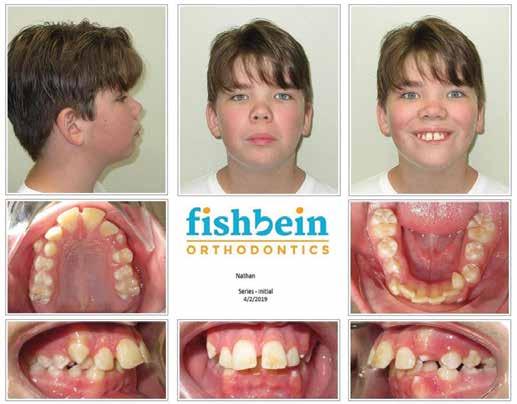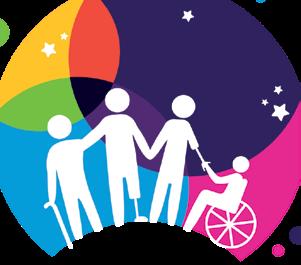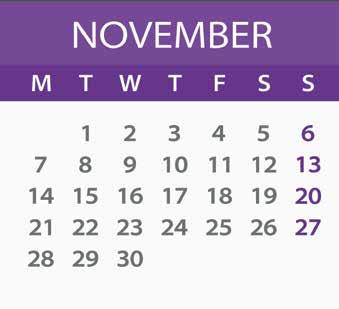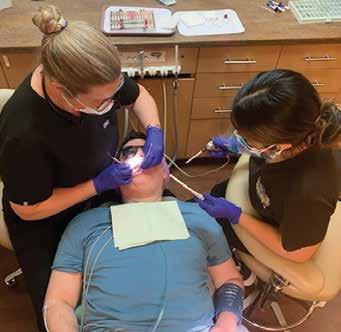
6 minute read
Treating Special Patients is Special Indeed
Treating
IndeedSpecial Special Patients Is
By Gabriela Asensi, DMD, MPH
Treating patients with special needs can be very rewarding. It may not be lucrative, but it is definitely rewarding. My interest in treating special needs started when I decided to become a pediatric dentist. As a pediatric dental resident, I got exposed to children who suffered from not only many chronic conditions, but also many disabilities. Autism, Cerebral Palsy, and Down Syndrome, among others, were the most common special needs who I encountered. I was fortunate to be able to see many disabled children that would come to see us from “homes” where they lived under the guardianship of the state. Unfortunately, I discovered that these children are often neglected and abandoned by their own caretakers because of the emotional and financial burden that it entails.
When parents do take on the challenge of raising a child with a special need, the special need disappears, and they only see their child. I have seen this first-hand. Let me share a story: Once I had to treat a fidgety 12-year-old girl with Down Syndrome who had recently emigrated from Cuba. She had fallen at home and her four front teeth were avulsed. The mother brought the teeth in a cup of milk as soon as she could. I was able to place them back in her mouth and put a splint. It was not easy, but I did it anyway. The issue then was finding an endodontist who would complete four root canals on this girl. I discussed the case with a colleague, and he asked, “Why don’t you do them?” So, long story short, under general anesthesia at our local children’s hospital, I completed four root canals. These parents were so grateful that they invited me as a guest of honor to her 15th birthday party. For Hispanics, celebrating “Los Quince” is equal to the “Sweet 16” birthday in American culture. It was a great compliment to me.
When treating special needs children, you will often find that parents shy away from disclosing medical histories because they might feel that if they do their children are not going to be treated equally to other children. That is why sitting down, in a private room, and taking the time during the initial visit is paramount. I always ask five important open-ended questions: 1. Does “Ann” or “Peter” have any medical conditions? 2. Is he/she taking any medicines? 3. Does he/she see any other doctors besides his/her pediatrician? 4. Has he/she ever been at the hospital for anything? and 5. Does he/she have any allergies? Then, listen … Listening is the most important part. You will find so much information by just letting parents speak. Nowadays, with so much information available on the internet, parents are much more knowledgeable about their children’s conditions.
Autism, for example, is one of the most common special needs that I encounter. Understanding Autism Spectrum Disorder (ASD) is complicated and challenging because patients can have a minor sensory issue, or they can be non-verbal and have difficulties socializing. Autism has many colors, tint, and hues. With these patients’ initial visit, I add four open ended questions, but before I do, I tell the parents: “I am going to ask four silly questions.” This approach usually breaks the ice. Parents of autistic children are stressed out because they know that the appointment might not be smooth sailing.
First question is: “Who cuts his/her hair?” If a patient does not sit still for a haircut, I know he/she will not sit still for me either. Second question is: “Does he/she follow instructions?” The answer to this question gives me so much information. It tells me if they are verbal, and it lets me know about their cognitive, emotional and social development. This is important because if the level of Autism is more involved, I know that “Tell-Show-Do” is not going to be my behavior management technique and if dental treatment is needed my approach should be a pharmacological approach, either by giving a preoperative anxiolytic, giving the patient nitrous oxide or moderate sedation. Sometimes we make arrangements with an anesthesiologist in our office, or we take the patient to the hospital for rehabilitation under general anesthesia. There are different ways to help these children. Third question is: “Is he/she potty trained?” I know what you are thinking… I did say the questions were silly. The answer to this question tells me about developmental delays, and ability to self-care. Finally, I ask: “Does he/she go to a special school?” Usually if an autistic child goes to a special school the level of Autism is more severe.
I can tell you a million more stories and experiences I have had with patients with special needs. It might not be as financially rewarding as doing “Smile Designs,” I know. However, these patients and their parents are so grateful, and they will be forever engraved in your heart. They will be your patients for life. It humbles me to see what these parents do for their children. It certainly helps me be grateful about my life, and
EARN 20,000 BONUS POINTS
when you spend $5,000 on the card within the first 90 days.1
Discover the perfect card for your practice — the ADA® Preferred Rewards Visa Signature® Card. It rewards your success with exceptional bonuses and perks.
Enjoy no foreign transaction fees2
When traveling abroad.
Earn an additional 20,000 bonus points1
After $125,000 annual spend.
No annual fee2
Travel on 150+ airlines — with no blackout dates
25,000 points = up to a $450 airline ticket!
Enjoy the rewards
Choose from travel, merchandise, gift cards, or cash back as a statement credit.
APPLY TODAY!
Call 888-327-2265 ext. 36992 or visit adavisa.com/36992

For every $1 of eligible net purchases earn1: 5 POINTS
on purchases made at ADA.org
5 POINTS
on hotel and car rental booked through our rewards site
2 POINTS
on purchases made with co-endorsing state societies, including dues payments
1 POINT
everywhere else Visa® is accepted
IMPORTANT INFORMATION: Rewards points are earned on eligible net purchases. Net purchases are purchases minus credits and returns. Accounts must be open and in good standing to earn and redeem rewards and benefits. Not all transactions are eligible to earn rewards, such as Advances, Balance Transfers, and Convenience Checks. Purchases qualify for Points based on how merchants choose to classify their business and we reserve the right to determine which purchases qualify. See your Cardmember Agreement for details. Points will expire five years from the end of the calendar quarter in which they were earned. 1. Rewards points are earned with your ADA Visa credit card for eligible net purchases (purchases minus credits and returns). Some restrictions apply. Refer to the Program Rules at adavisa.com/faqs for additional information. 2. The APR may vary and as of 4/4/2022, the variable APR for Purchases and Balance Transfers is 10.24% - 22.24% based on your creditworthiness. The variable APR for Cash Advances is 26.24%. Cash Advance fee: 5% of each advance amount, $10 minimum. Convenience Check fee: 3% of each check amount, $5 minimum. Cash Equivalent fee: 5% of each cash amount, $20 minimum. Balance Transfer fee: 3% of each transfer amount, $5 minimum. There is a $2 minimum interest charge where interest is due. The annual fee is $0. Foreign Transaction fee: None. We may change APRs, fees, and other Account terms in the future based on your experience with U.S. Bank National Association and its affiliates as provided under the Cardmember Agreement and applicable law. ADA is a registered trademark of the American Dental Association. The creditor and issuer of this card is U.S. Bank National Association, pursuant to a license from Visa U.S.A. Inc. ©2022 U.S. Bank











